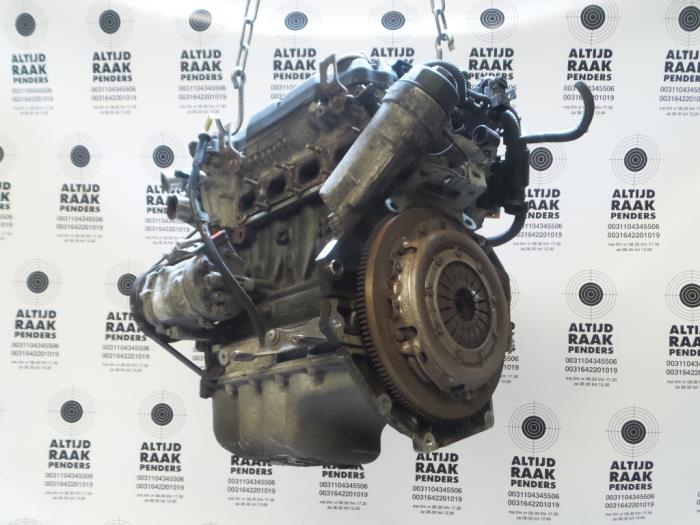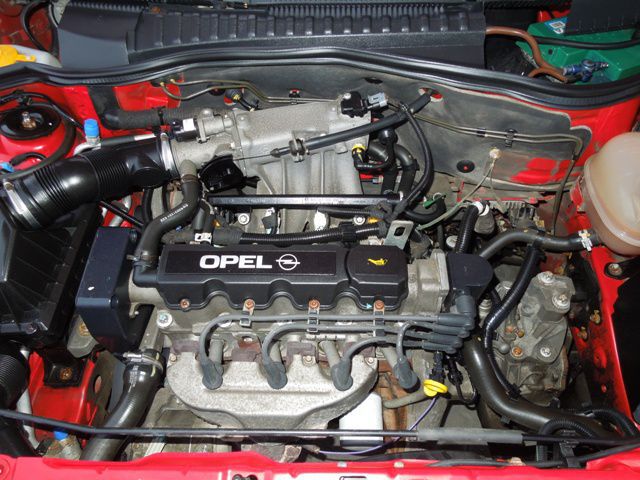Opel Corsa 1.4 Engine Price: Store High-Quality Vehicle Parts for Your Vehicle
Opel Corsa 1.4 Engine Price: Store High-Quality Vehicle Parts for Your Vehicle
Blog Article
Engine Buying Specialist Tips on Selecting the Right Engine for Your Particular Needs
Selecting the right engine for your details demands entails an intricate interplay of factors that go beyond mere horse power numbers. By delving into the complexities of power versus performance, assessing gas scores, and budgeting for long-term expenses, one can genuinely maximize their engine option.
Power Vs. Effectiveness: Finding the Balance
When choosing an engine, it is critical to strike a balance between power and performance to fulfill your certain needs successfully. Power describes the engine's capability to produce power for propulsion, figuring out factors like velocity, hauling ability, and general performance - Opel Corsa 1.4 Engine Price. On the various other hand, performance associates with how well the engine utilizes fuel to create power, affecting elements such as fuel economy and ecological friendliness
Attaining the appropriate balance between power and efficiency is vital because an engine that is as well powerful might take in extreme gas, causing greater operating expense and unnecessary stress on the setting. On the other hand, an engine that prioritizes performance over power might result in slow efficiency, especially popular situations like lugging heavy tons or driving uphill.
To make a notified choice, think about elements such as your normal driving problems, the designated use of the automobile, and your individual preferences. By examining your demands and top priorities, you can pick an engine that strikes the excellent balance between power and effectiveness, making certain optimal performance while minimizing ecological effect and operating expense.
Understanding Engine Size and Kind
To better fine-tune the choice process of an engine that strikes the ideal equilibrium in between power and effectiveness, it is crucial to dive right into the intricacies of comprehending engine dimension and kind. Engine size refers to the total quantity of air and gas that can be pressed via the engine cyndrical tubes.
Furthermore, engine kind plays a vital duty in identifying the performance attributes of an engine. Usual engine kinds include inline engines, V engines, and rotary engines, each with its distinct advantages and downsides. The engine kind affects elements such as the engine's dimension, weight distribution, and power distribution. Comprehending the interaction between engine size and type is essential in selecting an engine that straightens with your details requirements and concerns, whether it be power, performance, or a balance of both.

Consider Your Lorry's Needs
If you are looking for an engine for a heavy-duty vehicle that will certainly be made use of for towing, you will need a powerful engine with high torque capabilities. On the other hand, if you are picking an engine for a small auto mainly used for city travelling, fuel effectiveness may be a more crucial aspect to consider.
Additionally, the surface on which the automobile will mainly run must influence your engine choice. A robust engine with excellent climbing up power will be necessary if you regularly drive in hilly or uneven locations. On the other hand, for flat terrains, a more fuel-efficient engine may be adequate. By straightening the engine requirements with your car's demands, you can make certain that your lorry runs efficiently and satisfies your efficiency assumptions.
Reviewing Fuel Effectiveness Ratings
Analyzing gas efficiency ratings is a crucial element of choosing the ideal engine for your lorry, making certain cost savings and environmental sustainability. Gas efficiency scores, generally measured in miles per gallon (MPG) for gasoline engines or kilowatt-hours per 100 miles (kWh/100 miles) visit the website for electric engines, suggest how much a lorry can travel on a certain amount of fuel or power. Greater MPG or lower kWh/100 miles worths signify much more reliable engines, translating to decreased gas expenses and lower carbon emissions.
Additionally, compare different engine choices within the same car class to recognize the most affordable selection. Variables such as engine dimension, weight, the rules of aerodynamics, and hybrid or electrical capabilities can all affect fuel performance.
Budgeting for Long-Term Expenses
Purposefully preparing for lasting costs is vital when selecting an engine, ensuring financial sustainability over the car's life expectancy. While the first acquisition price of an engine is a considerable factor, it is crucial to consider the long-lasting prices linked with upkeep, repair work, and fuel consumption. Choosing an extra fuel-efficient engine may have a higher upfront expense however can cause significant savings with time. Routine upkeep, such as oil adjustments, filter replacements, and tune-ups, is vital to maintain the engine running efficiently and successfully, minimizing the risk of costly repairs down the line. find more
Additionally, investigating the accessibility and cost of replacement parts for the picked engine is crucial in budget preparation. By meticulously budgeting for these long-term expenses and factoring them right into the decision-making process, individuals can pick an engine that not only meets their instant requirements however additionally stays cost-efficient throughout its lifespan.
Conclusion
To conclude, selecting the best engine for your certain demands needs stabilizing power and performance, recognizing engine size and type, considering your automobile's needs, evaluating fuel effectiveness ratings, and budgeting for long-lasting expenses. By very carefully taking into consideration these aspects, you can make certain that you choose an engine that satisfies your demands and supplies optimum performance for your car.
To even more fine-tune the choice process of an engine that strikes the optimum balance between power and performance, it is vital to dive right into the details of understanding engine dimension and kind. Engine dimension refers to the overall quantity of air and fuel that can be pushed with the engine cylinders. Usual engine types consist of inline engines, V engines, and rotating engines, each with its distinct benefits and disadvantages. Recognizing the interplay in between engine size and kind is crucial in selecting an engine that straightens with your particular demands and concerns, whether it be power, efficiency, or an equilibrium of both.

Report this page